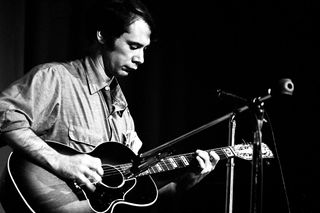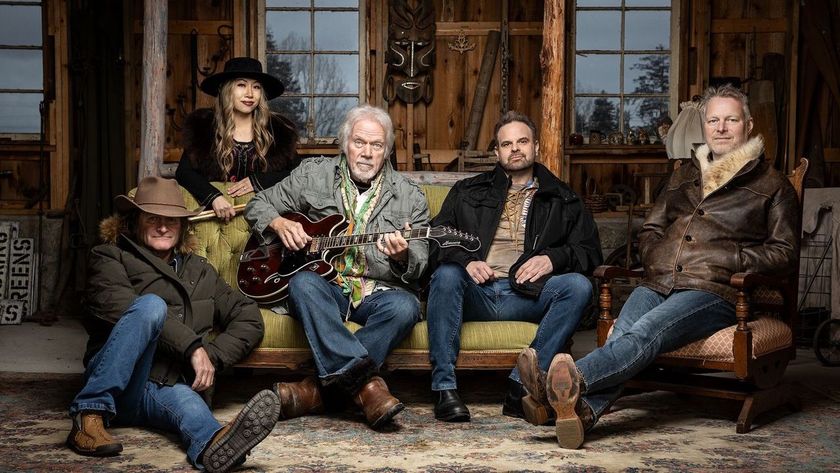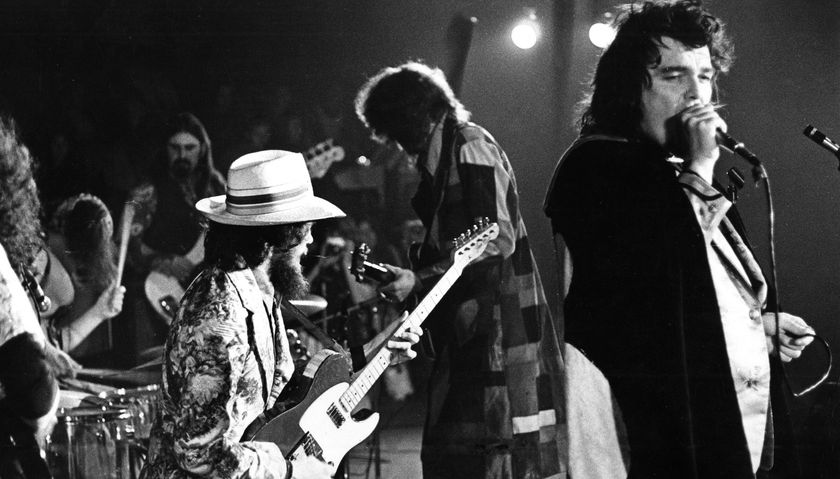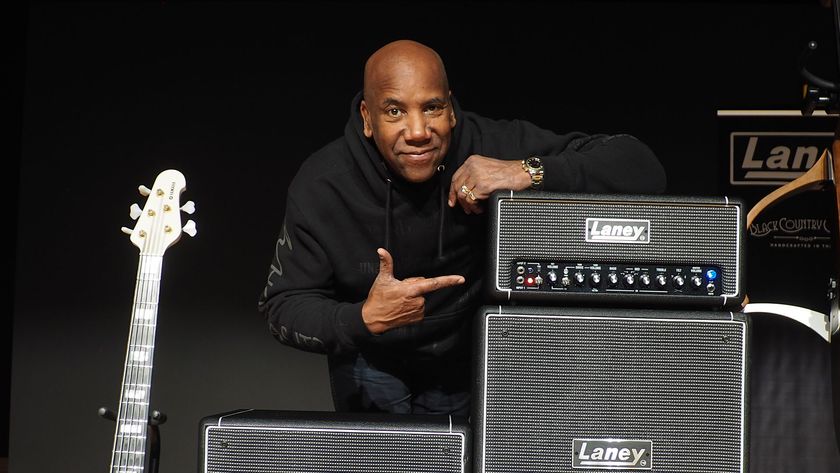Retrospective: John Fahey's 'Blind Joe Death'

It sort of sounds like any old, dusty blues recording you’ve ever heard.
Its distant notes bring to mind an America that exists only in the sort of colorless photographs you see in an art museum or Ken Burns documentary.
It evokes the fantastic myths of Robert Johnson’s death, and how he sold his soul to the devil.
But John Fahey’s “I’m A Poor Boy Long Ways From Home” wasn’t a recording made in the Mississippi Delta, or by Alan Lomax.
It was a highlight off of Fahey’s stunning 1959 debut album, Blind Joe Death, a record made in a church in Adelphi, Maryland.
“I’m A Poor Boy Long Ways From Home” highlights almost everything that makes Fahey’s debut so remarkable. At that time, the folk revival of the early 1960’s had yet to spring up, so the mainstream popularity of acoustic blues was at a low point.
Fahey, an extraordinarily gifted steel-string acoustic guitar player, instrumentally interpreted traditional blues songs through his own idiosyncratic finger picking style. While an instrumental album of steel-string acoustic blues may not seem all that unusual in today’s musical framework, in 1959 it was simply unheard of. Without funding from any major label, Fahey created Tacoma Records to press one hundred copies of Blind Joe Death.
Get The Pick Newsletter
All the latest guitar news, interviews, lessons, reviews, deals and more, direct to your inbox!
At that time, the popularity of the wild, unhinged rock of the '50s had waned and been replaced once again by safe, shiny pop. Accordingly, Blind Joe Death, an album influenced almost solely by African-American blues and gospel, went absolutely nowhere commercially. And boy, what the American public was missing out on.
The aforementioned “I’m A Poor Boy Long Ways From Home” is the album’s wonderful highlight. Fahey simulates the life of a traveling bluesman with his guitar. He keeps rhythm with the bass note, creating an inescapable pulse, and lets the high notes tell a sad, lonesome story. The emotion and lyricism Fahey wrings out of the few notes he plays are incredibly vivid and real, springing them free of their humble, lo-fi origins.
Here it here:
“Uncloudy Day” is even more unusual, especially for its time. Fahey opens the track by alternating eerie harmonics with the ominous thud of a plucked bass notes. The song that follows is dark, almost haunted by ghosts. Once again, the subtle variations Fahey throws in on the song’s main riff serve to tell a story. Every note, whether emphasized or not, serves its purpose, adding a voice to the story.
“John Henry” is more of a country-blues track, using a different technique of acoustic artistry. With no percussion at hand, Fahey does a brilliant job of providing a steady, strong rhythm and melodic leads simultaneously. “In Christ Time There’s No East Or West” is another slow spiritual. A more optimistic track, it resonates with a grand sense beauty and hope.
The strength of Blind Joe Death is Fahey’s ability to interpret classic blues and gospel songs instrumentally and channel the true feelings of the songs through his playing. Recorded, produced and released by John Fahey himself, Blind Joe Death is an incredible acoustic album that was light-years ahead of its time both musically and aesthetically.
More on John Fahey at johnfahey.com/
Jackson Maxwell is a freshman at the University of Massachusetts Amherst. He is double majoring in history and journalism. He is a staff writer for the Massachusetts Daily Collegian and has his own music blog entitled “Two Dudes, Two Computers” with his friend Zach Newman. You can follow him here at twodudestwocomputers.tumblr.com/ or http://themotorcade.tumblr.com/
Jackson is an Associate Editor at GuitarWorld.com. He’s been writing and editing stories about new gear, technique and guitar-driven music both old and new since 2014, and has also written extensively on the same topics for Guitar Player. Elsewhere, his album reviews and essays have appeared in Louder and Unrecorded. Though open to music of all kinds, his greatest love has always been indie, and everything that falls under its massive umbrella. To that end, you can find him on Twitter crowing about whatever great new guitar band you need to drop everything to hear right now.

"The BTO sound is BACK!!" Bachman-Turner Overdrive release first new material in over 25 years – and it features a Neil Young guitar solo

“He would beat the crap out of the guitar. The result can best be described as Jackson Pollock trying to play like John Lee Hooker”: Aggressively bizarre, Captain Beefheart's Trout Mask Replica remains one of the craziest guitar-driven albums ever made










